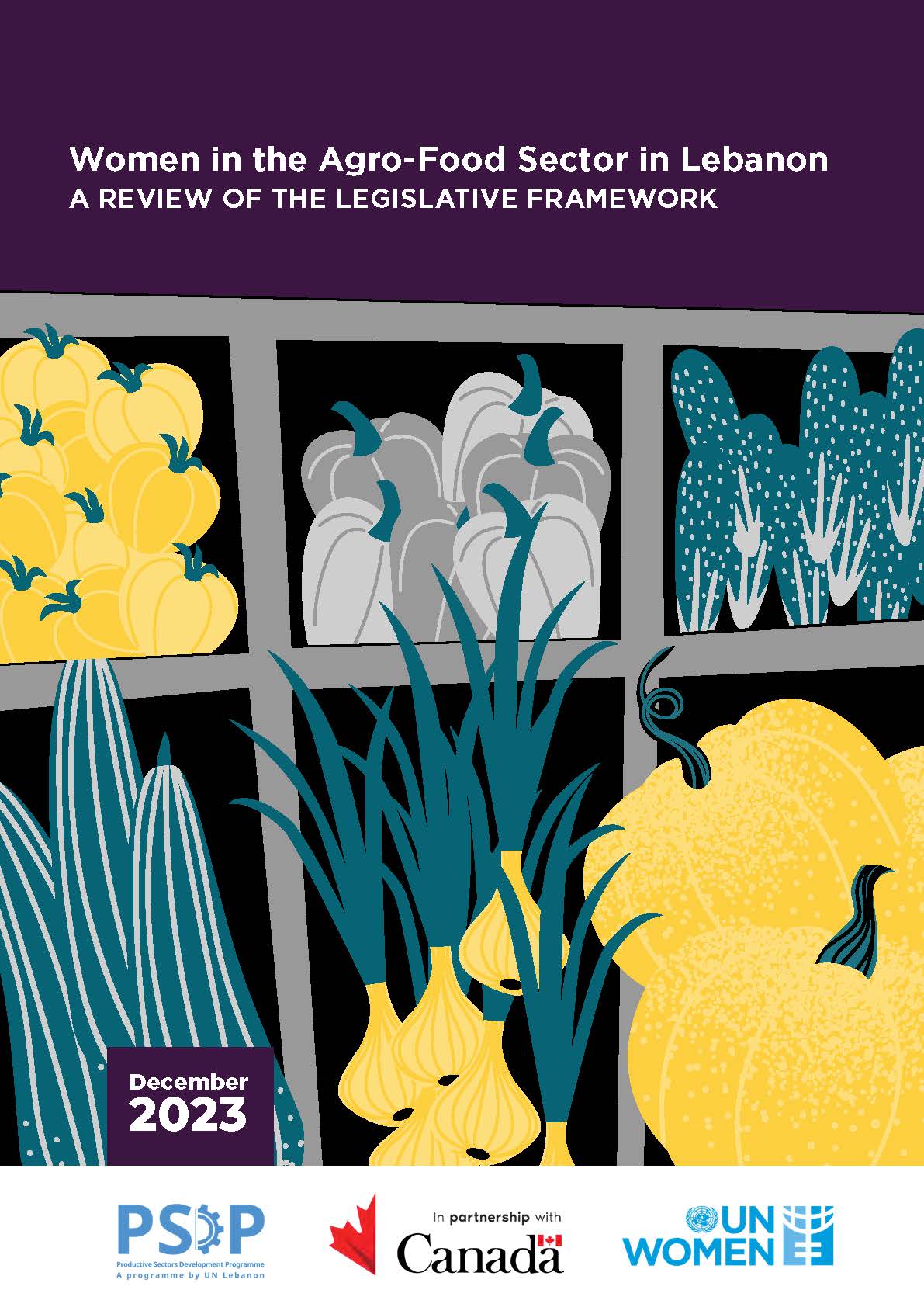
Women in the Agro-Food Sector in Lebanon - a Review of the Legislative Framework

Gender gaps are widening across all continents and sectors, including agriculture. Women, for example, are paid less or work unpaid in family holdings, own smaller parcels of land, and grow less lucrative crops. Although rural women are productive members of their families and societies, their voices are always marginalized: they are not involved in decision-making related to family life, community issues, money, or business. They do not even make decisions regarding the expenditure of their own income. At all stages of their lives, rural women face obstacles that prevent them from having full freedom of movement or political participation in societies that rely heavily on agriculture for food and income. Inequalities are reflected in wide gender gaps in agricultural production, which incur high prices paid by societies.
In Lebanon, women in rural areas make up 43% of the agricultural workforce. In 2010, only 9% of farms were headed and managed by women and only 5% of the total agricultural area was cultivated by women. Gender gaps prevail when it comes to women’s participation in rural legislation and rural areas program development as well as in agricultural wages, with women often earning two thirds to half of the wages of men. Around the world, this reality is due to multiple factors depending on the national context. However, regardless of the reasons, the lack of legislation and legal frameworks regulating the agricultural sector in general, and women’s participation in this sector in particular, remains a key factor for discriminating against women, marginalizing their agricultural role, and denying their contributions to the production cycle. One of the most important recommendations of the national study on women in agriculture in Lebanon, prepared by the Food and Agriculture Organization of the United Nations (FAO) in 2020, is to develop legal policies and measures to address existing gender gaps, such as the wage gap, and to make changes to labour law and personal status laws in order to create an environment conducive to economic integration.
This analytical paper was prepared by UN Women Lebanon. It aims to examine the extent to which the Lebanese legislation and policy frameworks take into account gender diversity and women’s equitable and safe economic participation in the agricultural sector and the agro-food industries (from plant and animal origin). The authors of this paper hope that it will help in developing the most important reforms required at the legislative level in order to use it as an advocacy tool and to urge Parliament to adopt new laws or amend and reform existing laws to enhance the role of women working in the agricultural and industrial sectors. This paper is part of a three-year production sector development program implemented by six UN agencies operating in Lebanon. The report is based on analytical desk research and meetings with parliamentarians, jurists, lawyers, and two focus groups, both of which included rural farmer women affiliated with agricultural cooperatives. As a result, the main features of Lebanon’s legislative framework related to the agricultural sector were set out.